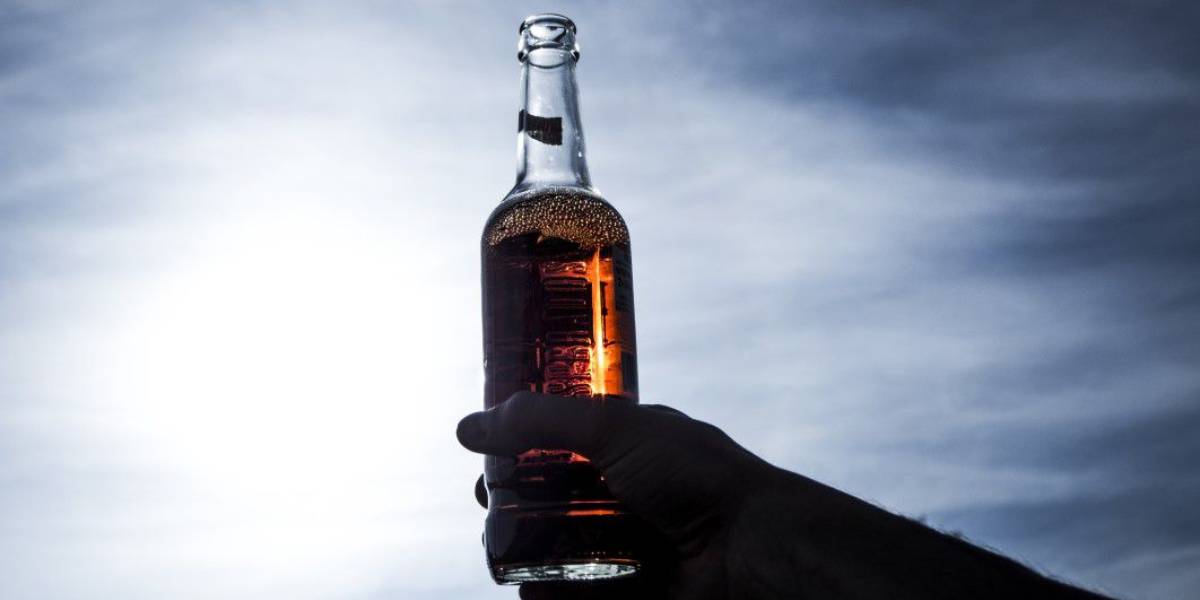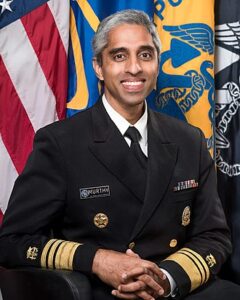US Surgeon General recently issued an advisory; move to label alcoholic beverages so consumers are aware of cancer risk.
Published Jan 07, 2025 | 7:00 AM ⚊ Updated Jan 07, 2025 | 7:00 AM

BEVCO announces price revision for liquor brands
US Surgeon General Dr Vivek Murthy recently issued an advisory recommending that alcoholic beverages carry warning labels about their link to cancer.
The 22-page advisory said, “Alcohol consumption is the third leading preventable cause of cancer in the United States, after tobacco and obesity. While scientific evidence for this connection has been growing over the past four decades, less than half of Americans recognise it as a risk factor for cancer.”
Alcohol, the advisory noted, is a significant risk factor for at least seven types of cancer, including breast, liver, and colorectal cancers.

US Surgeon General Dr Vivek Murthy. (Wikipedia Commons)
Notably, approximately 16.4 percent of all breast cancer cases are attributed to alcohol use.
Each year in the US, alcohol is linked to around 100,000 cancer diagnoses and 20,000 cancer-related deaths.
Despite extensive research demonstrating the association between alcohol and cancer, “the majority of Americans remain unaware of this risk,” the US Surgeon General stated.
“Update the existing Surgeon General’s health warning label on alcohol-containing beverages to include a warning about the risk of cancer associated with alcohol consumption. Pursue changes to label characteristics to make the warning label more visible, prominent, and effective in increasing awareness about cancer risks associated with alcohol consumption,” said the advisory.
The advisory suggested that health warning labels are well-established and effective approaches to increasing awareness of health hazards and fostering behaviour change.
Considerable evidence supports the use of health warning labels, including promising evidence toward their role in raising awareness about alcohol-related risks.
For example, an experiment in Canada demonstrated that the inclusion of warning labels on alcohol beverage containers resulted in a 10% increase in knowledge about the association between alcohol and cancer after just two months of labelling.
Additionally, scientific evidence demonstrated that prominent, pictorial, and rotating messages, compared to less conspicuous, text-only, and static messages, are more effective in influencing awareness and behaviour.
There are 47 countries that require alcohol warning labels related to health and safety.
South Korea requires a cancer-specific warning, and spurred by existing evidence, Ireland signed into law a new requirement to display a cancer warning label on alcohol-containing beverages starting in 2026. “There is a direct link between alcohol and fatal cancers,” the Irish label will read.
Dr. Murthy emphasised that many Americans are unaware of the cancer risk from alcohol consumption; only 45% recognise alcohol as a cancer risk, compared to higher awareness of other risks such as tobacco use.
He suggests that alcohol warning labels be updated to include cancer risk information; also that the labels become more prominent to increase public awareness.
Hyderabad-based neurologist Dr Sudhir Kumar told South First that just like we see warning labels on tobacco products in India that emphasise their cancer risks, it is high time alcohol products carried similar warnings.
“In the Indian context, I think this would be a very positive move. We need to inform the public about risks from alcohol consumption, just as we did with smoking. Over time, smoking rates have declined, at least partially because people now understand there’s nothing good about it. However, alcohol is currently being glamorised in India. Celebrities endorse it, and it’s a fixture at high-profile events, whether it’s flights, parties, or even conferences attended by professionals, including doctors,” said Dr Kumar.
He pointed that the glamourisation makes alcohol seem aspirational. Even people who cannot afford it are drawn to the idea of drinking because it is associated with wealth and sophistication.
“We need to change this narrative. Just as we ‘demonized’ cigarettes with graphic warnings, we should do the same with alcohol. Right now, alcohol bottles have no warnings, and their packaging often glamorises the product,” he said.
He also said that the lack of education and awareness about alcohol’s ill effects is evident in cases like the recent incident where a flight from Surat to Bangkok broke records for alcohol consumption.
Ironically, this came from a state like Gujarat, which is officially dry. Incidents like these highlight how alcohol’s risks are not taken seriously.
“We must start warning the public, even if it is with mild messaging at first, and build toward stronger measures over time. A step like the one proposed in the US is a lesson India can learn from. Adding hazard warnings on alcohol bottles is a necessary step to educate people about the real dangers of alcohol consumption,” said Dr Kumar.
Hyderabad based cardiologist Dr Mukharjee Madivada said the warning labels on tobacco products have had an impact, and similar warning on alcoholic beverages would also serve to inform people of the risk of cancer from alcohol consumption. “However, while labeling is an important step, it is far from sufficient,” he said.
He said that in India, alcohol consumption has become normalised, and people do not perceive it as a health hazard. Social drinking is often dismissed as harmless, with a widespread misconception that moderate drinking — about 60 ml per day — is considered entirely safe.
Even though multiple guidelines and health organisations have highlighted the risks, people continue to justify their drinking as “moderate,” regardless of the quantity consumed.
“As a cardiologist, I often hear patients claim they drink because they believe it benefits their heart. This is a deeply entrenched myth. The overall impact of alcohol on the heart is undeniably harmful. Alcohol raises blood pressure, causes rhythm disturbances, weakens the heart muscle (a condition called alcoholic cardiomyopathy), and contributes to various other cardiac issues,” said Dr Madivada.
He said the British Heart Foundation has explicitly stated that no amount of alcohol is safe for the heart.
This message must be emphasised to dispel the misconception that alcohol can protect against heart disease.
“For those already experiencing alcohol-related heart issues, some conditions, like “holiday heart syndrome”— an irregular heartbeat after binge drinking — can resolve if alcohol consumption stops. However, damage from alcoholic cardiomyopathy may not always reverse and often depends on the severity and response to treatment,” he said.
He added that labelling alone will not drive this message home.
“Comprehensive public health campaigns are essential to educate people about the risks and dismantle the normalisation of alcohol consumption in India.”
(Edited by Rosamma Thomas).
